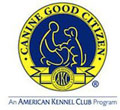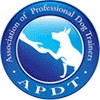What’s the difference between reinforcement and bribery?
This comes up in training sessions ALL the time, usually brought up by someone who has been told by a well-meaning friend or professional that they are one and the same, and are now afraid that by using positive reinforcement to train they are going to “spoil” their pet.
…But, there is a difference, and it’s small, but very important! We’ve all known pets who will “only do [insert behavior here] if he knows I have a treat!” Well, here’s why.
Bribery is defined (by dictionary.com) as: to promise, offer, or give something, to procure services or gain influence; any persuasion or lure
Reinforcement is defined as: to reward an action or response of (a human or animal) so that it becomes more likely to occur again. the key difference between the two is when the reward is presented to the animal: before, or after the behavior.
Here’s an analogy.
Let’s pretend I need you to clean my bathroom.
Scenario A: I offer a bribe to you as incentive for performing a desired behavior. “See this $100 bill? I’ll give it to you if you clean my bathroom.”
Scenario B: I provide reinforcement to you after the behavior is offered. “Oh my gosh, thanks for cleaning my bathroom! Here’s $100 – go buy yourself something nice!”
Sweet deal, right? Now, let’s pretend a week goes by, and I ask you if you could clean my bathroom again, but I don’t mention anything about money. Think about it: what would your reaction be (Other than, “why can’t you clean your own bathroom?”)
Chances are, if you were in scenario A originally (the bribe), you would be thinking: “Wait a minute … last time she offered me $100 for this job! What gives?!”
If you were in scenario B, you might be thinking: “Oooh, maybe she’ll surprise me with a gift again! Sure, I’ll clean your bathroom!”
Over the long term, how you feel matters.
Now, let’s pretend that you are a nice person with nothing better to do, and do chores for me all the time, and every once in a while I surprise you with $100 for doing a good job.
How are you going to feel about doing me a favor? Pretty positive, right?
How are you going to feel toward me, as a friend?
Now, contrast that with a bribe: How would you feel if every time I wanted you to do something, I dangled that $100 in front of you, then requested a yucky chore? What kind of quality work would you do for me? How would you feel about me, as a friend?
Animals are smart.
If you routinely bribe your pet, they are smart enough to look to see if you have the payment in your hand before performing the desired behavior. (“He only comes when he knows I have a treat!”)
An animal who has been unexpectedly reinforced with something wonderful, however, will be willing to perform all sorts of behaviors to earn their “paycheck” without checking to see if it’s in your hand first. They trust that at some point, it’s coming.
Here’s where things get tricky.
Bribery is not necessarily a horrible thing; it gets the job done sometimes. It can also help an animal to understand what you want them to do, when you don’t have an easy way of eliciting the behavior you want to reinforce (think of teaching a dog to “go to his bed” by showing him a treat over on the bed). In training we call this “luring,” and it’s definitely a form of bribery. It’s harmless as long as you fade the lure as soon as possible – a good positive reinforcement trainer can help you do this.
This is an oversimplified explanation, but hopefully it makes things a little clearer. Bribing an animal to behave is very different than rewarding good behavior. Contact us and we can help you make the absolute most of your positive reinforcement training!









